Responding to the Qfly outbreak.
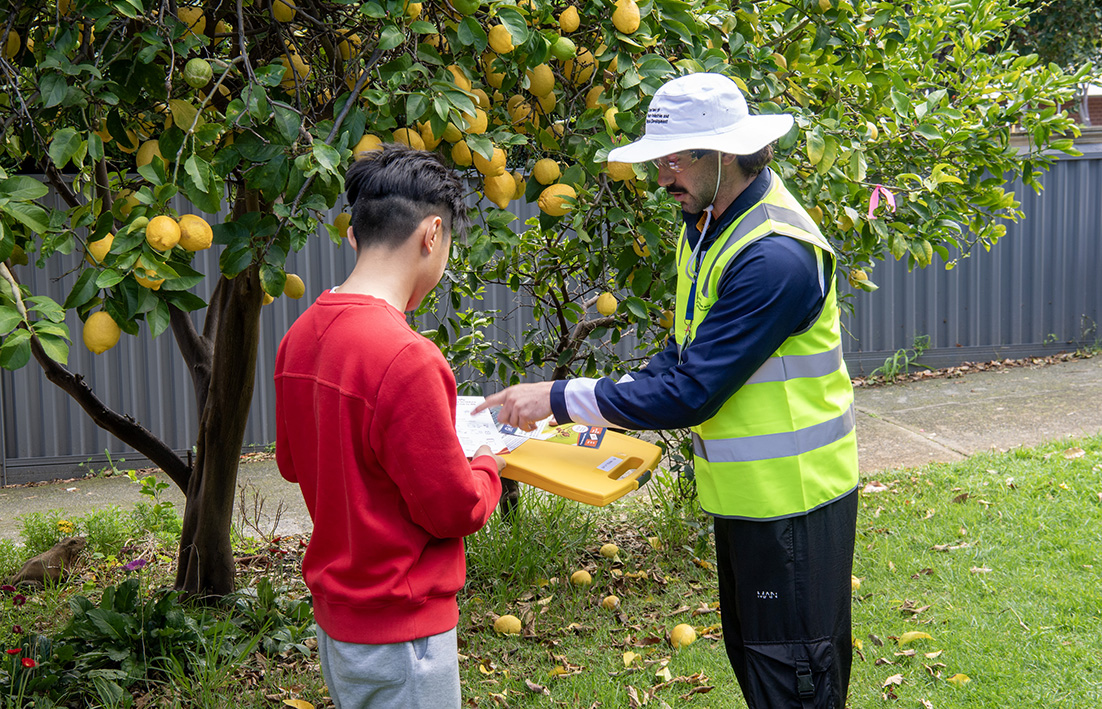
A SINGLE Qfly found in a Nollamara residential area on September 12 has led to the extension of the quarantine area notice.
The quarantine area notice has been extended to Tuesday, December 5, pending no further detections within the quarantine area – the quarantine area itself however, remains unchanged.
The quarantine area is a 15km radius from the intersection of Frinton and Roberts streets in Bayswater and includes Swan, Mundaring, Bassendean, Perth, Belmont, Gosnells, Kalamunda, Vincent, Joondalup, Wanneroo, Melville, Canning, South Perth, Subiaco, Stirling, Nedlands, Belmont, Claremont, Victoria Park, and Cambridge.
The national fruit fly management protocol requires the absence of Qfly in the quarantine area for one generation plus 28 days or 12 weeks after the last wild fruit fly or larvae is detected (whichever is longer) before a quarantine notice can be lifted.
On Wednesday the Department of Primary Industries and Regional Development (DPIRD) said supplementary traps had been deployed in the detection area and surrounds with no additional flies being found to date.
“Monitoring of surveillance traps across the quarantine area and the broader metropolitan area continues, as part of the department’s Qfly monitoring network,’’ a DPIRD spokeswoman said.
“DPIRD is liaising with Swan Valley growers and providing advice and assistance where required.”
On October 27, DPIRD said the strict requirements around moving fruit and fruiting vegetables for Bayswater and Belmont residents had now been lifted and they were now subject to the same movement conditions as those in the broader quarantine area.
While Bayswater and Belmont residents are no longer required to cook, freeze, process or solarise host fruit or fruiting vegetables before disposal, the measures were still recommended to prevent Qfly or other pests taking hold in the area.
Residents no longer have to remove fallen fruit every three days but are still encouraged to do so to maintain good garden hygiene.
For updated information on the new requirements visit the Qfly biosecurity response DPIRD webpage www.agric.wa.gov.au/qflyupdate
Reports of suspected Qfly should still be made to DPIRD’s pest and disease information service on 9368 3080, email padis@dpird.wa.gov.au or via the MyPestGuide Reporter app.
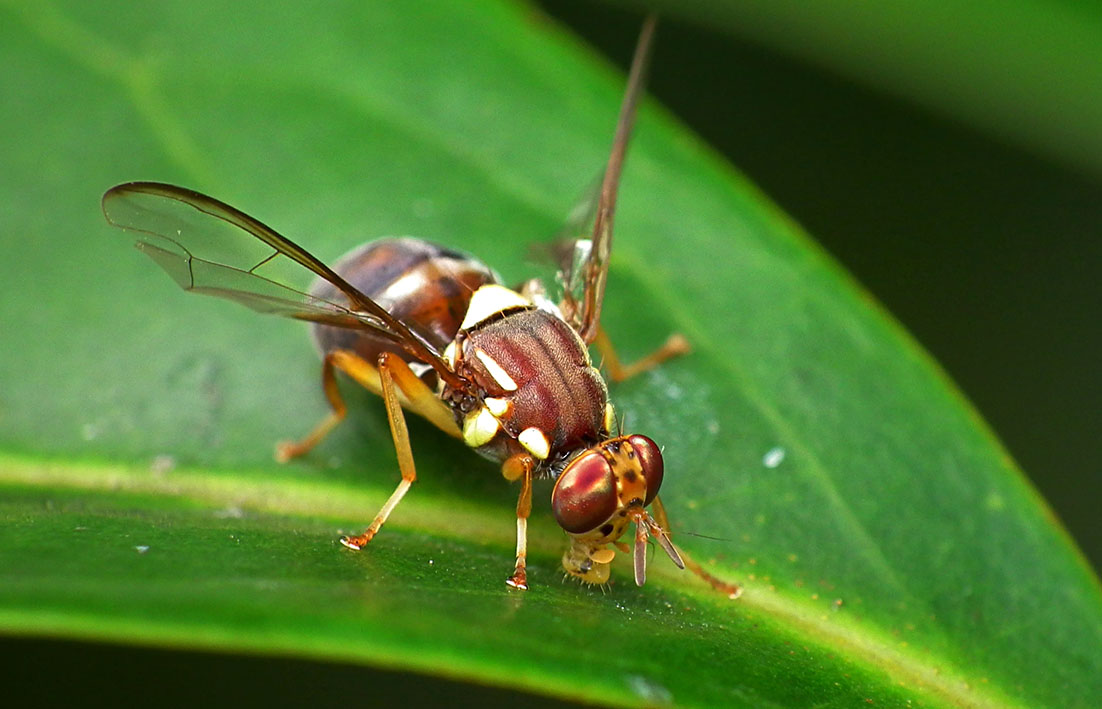
RESIDENTS are encouraged to help protect the state’s vital agriculture industry from potentially damaging pests and diseases by signing up for the annual biosecurity blitz.
The month-long event begins on October 16, with the community asked to be on the lookout for interesting insects and plants living in backyards, bushland and parks across the suburbs.
Most are harmless but some may damage the garden or threaten WA’s forests and agriculture industry.
Last year there were 1252 reports during the blitz, and these reports improve chances of eradication, safeguarding WA’s access to international trade markets.
The Department of Primary Industries and Regional Development (DPIRD) is currently responding to two key pests in the metropolitan area, the Queensland fruit fly (Qfly), and polyphagous shot-hole borer.
Agriculture and Food Minister Jackie Jarvis said the biosecurity blitz was a fun way for families to join the surveillance efforts for these pests and protect the state’s agricultural sector and the environment.
“Every report helps to increase the likelihood that serious pests and diseases will be detected early, giving us a better chance to eradicate or contain them.
“Negative reports or zero detections of specific pests can also support our access to valuable export markets for our fruit and vegetable produce.”
Meanwhile, DPIRD’s Qfly biosecurity response is continuing to work towards eradication.
A DPIRD spokeswoman said it was too early to determine the future of the quarantine area notice.
“DPIRD thanks the residents, businesses and the community for their continued vigilance and support to eradicate this potentially damaging pest,’’ she said.
“The department continues to liaise with Swan Valley growers via a working group, as well as industry updates and briefings.”
Reporting during the biosecurity blitz is easy, use a mobile phone to upload pictures and information to the MyPestGuide reporter app or online portal.
For more information or to sign up, click here.
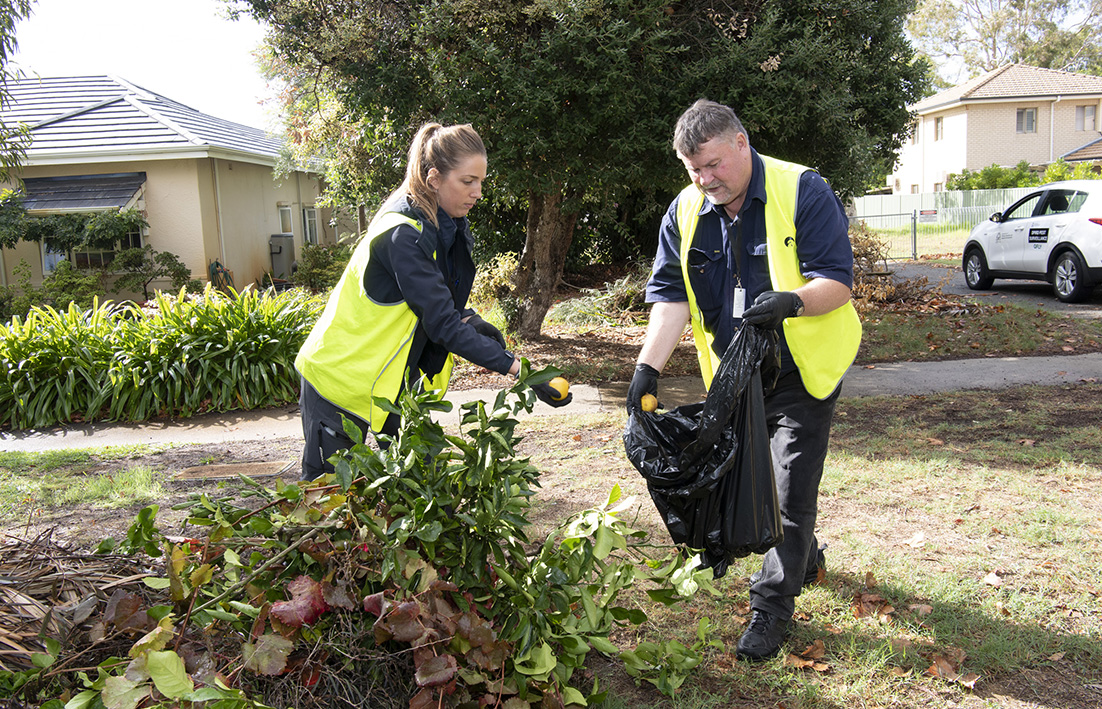
TAGS containing advice for home gardeners on how to best manage fruit trees to help prevent the spread of Queensland fruit fly will be attached to citrus, stone and pome fruit trees prior to sale.
The Department of Primary Industries and Regional Development (DPIRD) has developed the tags, already successfully used in South Australia, and is working with the nursery and garden industry of WA to distribute them to nurseries across the Perth metropolitan area and in the regions.
As part of the response to the Queensland fruit fly (Qfly) in parts of Bayswater a quarantine area has been set up.
The quarantine area covers a 15km radius from the Qfly detection points and includes the local government areas of Kalamunda, Swan, Mundaring, Bassendean, Belmont and Bayswater.
Suburbs in the quarantine area include Ballajura, Cullacabardee, Lexia, Whiteman, West Swan, Dayton, Brabham, Bennett Springs, Caversham, Herne Hill, Stratton, Jane Brook, Swan View, Middle Swan, Viveash, Midland, Midvale, Greenmount, Koongamia, Maida Vale, Gooseberry Hill, Kalamunda, Forrestfield, Wattle Grove Bassendean, Eden Hill, Lockridge.
Citrus growers and viticulturists in the Swan Valley are within the export assurance zone, so requirements for the management of Qfly host fruit in the area are less stringent than the 1.5km area surrounding the Bayswater detection point.
In the export assurance zone commercially grown Qfly host fruit cannot move either within the quarantine area or outside that area unless it is treated.
In March Caversham table grape grower Matt Katich told Echo News that operations for growers had changed minimally as DPIRD Qfly management required them to use baiting and cold storage which were part of most grower’s standard practice.
“We do baiting already… nothing has changed and we are cold storing our fruit,” he said.
“For growers we are already following normal vineyard hygiene – that is why it takes off in the suburbs because people have fruit trees and people tend not to take care of these things.”
The quarantine area is divided into two main zones: the corrective action zone which is the 1.5km area surrounding each detection point and the export assurance zone covers the area in a 15km radius from the detection pointthat is not part of the corrective action zone.
DPIRD has been contacted about the date the trees with the tags attached will be available for customers to buy.
For more information on Qfly and to see a map of the full quarantine area where you can click on your street in the map to see which area your property is in visit agric.wa.gov.au/qflyupdates
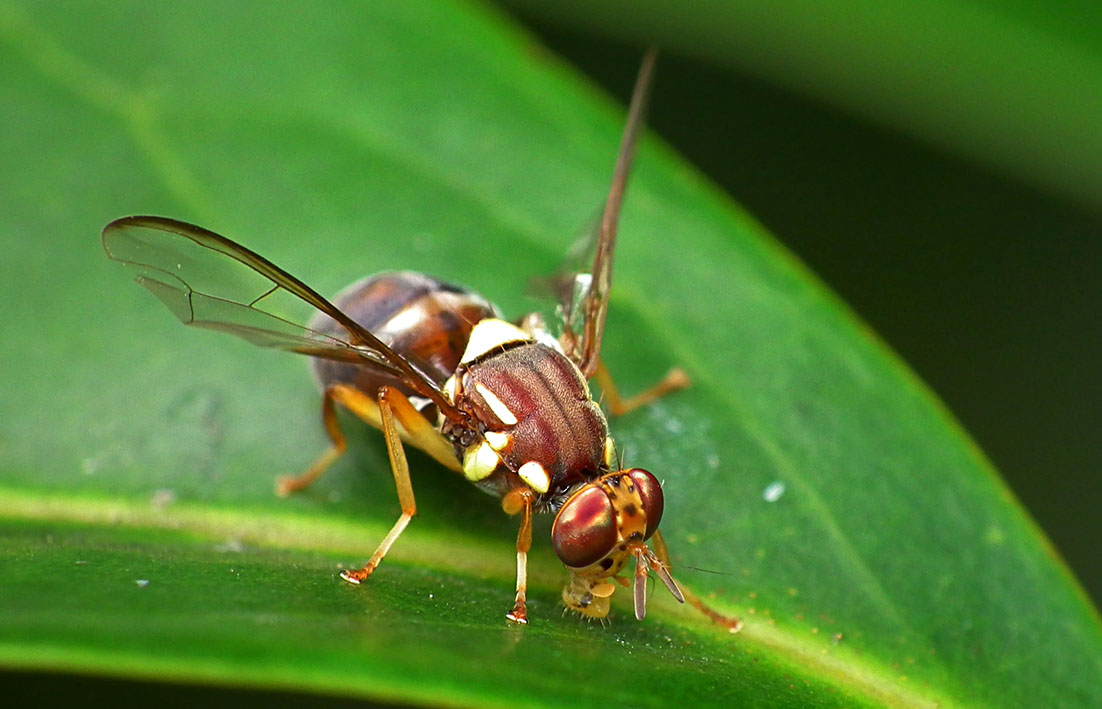
THE Swan Valley is now part of a broader buffer zone requiring growers to follow movement directions for produce following the recent detections of a damaging fruit fly in Bayswater.
The Department of Primary Industries and Regional Development (DPIRD) said it was working with Swan Valley growers, providing advice on the movement and treatment of commercial fruit within, out of and through the quarantine area.
DPIRD said while there had been no Queensland fruit fly (Qfly) detections in the outer metropolitan horticulture production districts, the Swan Valley had been included to support efforts to eradicate the serious agricultural pest requiring residents and businesses to take action.
The quarantine area for parts of the cities of Bayswater and Belmont has a small corrective action zone covering a 1.5km radius around the detection point near the intersection of Frinton and Roberts streets.
Chief plant biosecurity officer Sonya Broughton said the quarantine area was required for an efficient and effective biosecurity response and called on the community for support.
Dr Broughton said it was important everyone played a part to aid a swift response and prevent Qfly from further affecting the state’s valuable horticulture industries.
“Working together – industry, government and community – and adhering to the quarantine area directions gives us the best chance of eradicating this pest, which could impact growers’ livelihoods and access to valuable markets,’’ she said.
An extensive DPIRD eradication campaign is underway, including inspections and baiting with a registered organic control, on street trees and trees on residential and commercial properties.
DPIRD said home grown fruit and fruiting vegetables, like tomatoes, chillies and capsicums, cannot be moved out of or within the corrective action zone, unless cooked, frozen or solarised.
Unwanted fruits and fruiting vegetables can be treated by cooking, freezing or solarising before being disposed of in general waste bins.
Ripe or ripening fruit and fruiting vegetables from home gardens must be picked regularly and all fallen fruit removed every three days and cannot be moved within or outside the zone unless treated.
It is important that homegrown fruits and vegetables are not disposed of without prior treatment, as this risked spreading Qfly outside of the current zone.
The damaging pest was found in Bayswater by DPIRD’s early detection surveillance trapping grid.
Qfly is considered one of the world’s worst pests, attacking more than 300 fruits, fruiting vegetables and fruiting plants, as well as home gardens.
The department has expertise and experience in responding to Qfly detections in the metropolitan area, having eradicated the pest eight times in the past 40 years, most recently in the western and southern suburbs in 2020 and 2021.
For a map, information on movement, treatment and disposal requirements and to stay up to date with the Qfly biosecurity response visit the DPIRD website www.agric.wa.gov.au/qflyupdate
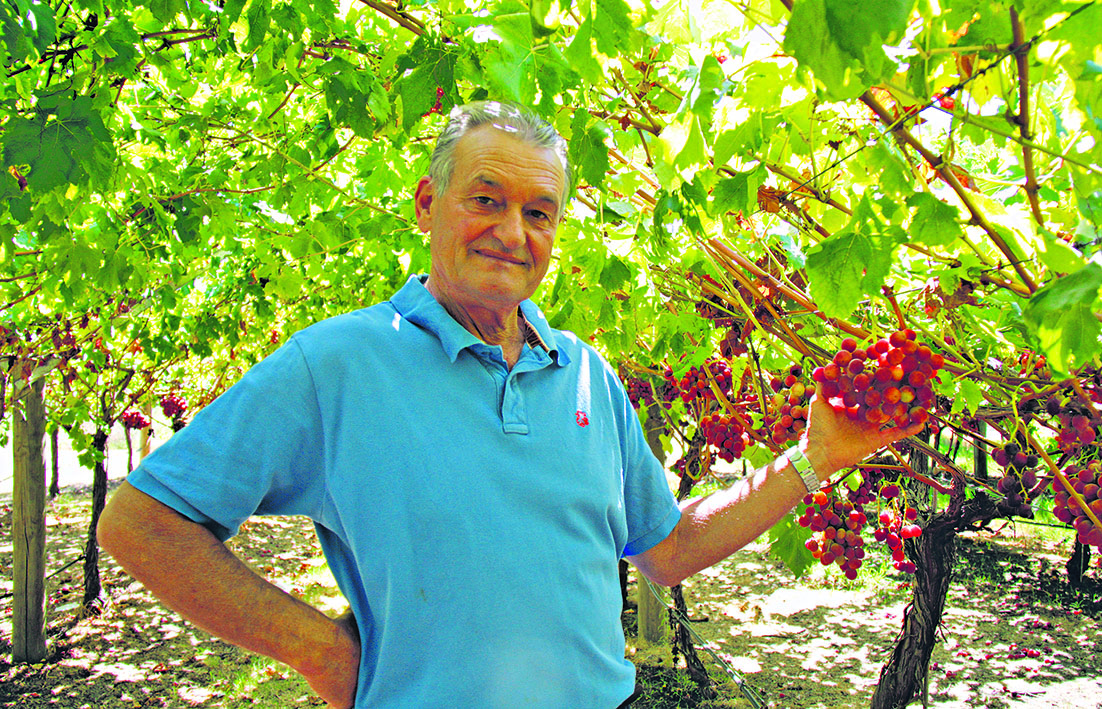
IF an outbreak of Queensland fruit flies were to happen, it’s probably good that it happened now, says Caversham grower Matt Katich.
Following a recent detection of the damaging fruit fly in Bayswater, the Swan Valley was named as part of the broader buffer zone, requiring growers to take action and ensure the pest doesn’t spread further.
While the alert was worrying at first, Mr Katich said growers would have been in greater trouble earlier in the season which generally runs from late December to mid-April.
“We are towards the end now, about 90 to 95 per cent of our grapes have already been harvested,” he said.
“If [detection] was to occur at the beginning of the season it would be a huge drama, it would be quite problematic.”
Table grape growers like Mr Katich and other viticulturalists in the Swan Valley are within the export assurance zone, so requirements for the management of Qfly host fruit in the area are less stringent than the 1.5km area surrounding the Bayswater detection point.
In the export assurance zone commercially grown Qfly host fruit cannot move either within the quarantine area (QA) or outside the QA unless it is treated.
Mr Katich said operations had changed minimally as the Department of Primary Industries and Regional Development’s (DPIRD) Qfly management outlined the requirement for baiting and cold storage which was part of most local grower’s standard practice.
“We do baiting already… nothing has changed and we are cold storing our fruit,” he said.
“For growers we are already following normal vineyard hygiene – that is why it takes off in the suburbs because people have fruit trees and people tend not to take care of these things.”
In a list of steps to reduce the risk of Qfly infestations in backyards DPIRD instructed residents to keep an eye on their fruit trees, vegetable garden and ornamental host plants, pick up and dispose of fallen fruit, use netting to cover fruit trees and report a suspected Qfly via the pest and disease information service.
For a map, information on movement, treatment and disposal requirements and to stay up to date with the Qfly biosecurity response visit the DPIRD website.